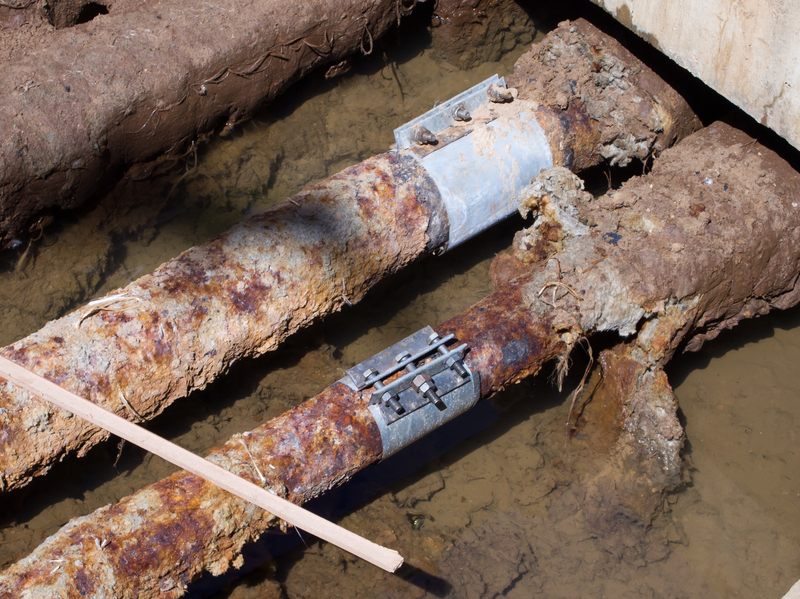Mississippi Materials and Ethics 15 PDH Discount Package 3
Courses in this Package
Corrosion Control for Aircraft (T09-001)
Lubricants and Hydraulic Fluids - Overview (T04-008)
Determining Negligence in Engineering Failures (LE2-012)

This online engineering PDH course provides information regarding the identification and treatment of corrosive attack on aircraft structures and engine materials.
Corrosion is the electrochemical deterioration of a metal because of its chemical reaction with a surrounding environment. While the aerospace industry is continuously developing new and better materials, progress is offset partly by a more aggressive operational environment and by the complexity of the corrosion phenomenon, which can take many different forms. The resistance of aircraft materials to corrosion can drastically change with only a small environmental change.
This 9 PDH online course is applicable to material, industrial and mechanical engineers, as well as aircraft operators, maintenance and repair personnel in addition to all others seeking a better understanding of the basics of corrosion in aircrafts.
This PE continuing education course is intended to provide you with the following specific knowledge and skills:
- Familiarizing with the factors that cause corrosion
- Understanding the effects of corrosion
- Knowing which areas are prone to corrosion and the methods of prevention
- Learning the requirements for inspecting aircraft
- Learning corrosion removal techniques
Upon successful completion of the quiz, print your Certificate of Completion instantly. (Note: if you are paying by check or money order, you will be able to print it after we receive your payment.) For your convenience, we will also email it to you. Please note that you can log in to your account at any time to access and print your Certificate of Completion.

This online engineering PDH course describes the basic principles, characteristics, properties, and applications of different types of lubricating oils.
This course is intended to be a practical guide to lubrication with enough technical detail to allow personnel to recognize and easily discern differences in performance properties specified in manufacturers' product literature so that the proper lubricant for a particular application is selected.
This 4 PDH online course is applicable to engineers, design and construction personnel, and other technical professionals who are interested in gaining a better understanding of lubricants.
This PE continuing education course is intended to provide you with the following specific knowledge and skills:
- Understanding the definition of friction and mechanisms of wear
- Understanding the basic principles of lubrication
- Learning about the different types and characteristics of lubricants
- Familiarizing with the applications of lubricants
- Learning about the basics of the lubrication oil and the production methods
In this professional engineering CEU course, you need to review Chapters 2 through 4 of the "Lubricants and Hydraulic Fluids" engineering manual, published by the United States Army of Corps of Engineers (USACE), Publication Number EM 1110-2-1424, dated January 29, 2016.
Upon successful completion of the quiz, print your Certificate of Completion instantly. (Note: if you are paying by check or money order, you will be able to print it after we receive your payment.) For your convenience, we will also email it to you. Please note that you can log in to your account at any time to access and print your Certificate of Completion.

This engineering online PDH course will establish conditions under which, when an engineering failure has occurred, it can be attributed to negligence.
Five causes of failure are proposed: negligence, rare failure mode, overlooked failure mode, new (previously unrecognized) failure mode, and incorrect assessment of a known risk. Negligence is the only cause that involves failing in an ethical duty. These concepts are illustrated with five case studies of failures ranging from gross negligence to absolutely unforeseeable events: 1) the Great Boston Molasses Flood of 1919, for which a new possible cause was identified 95 years later (2014); 2) a building collapse in Bangladesh in which over 1,000 people died—one of the worst structural engineering disasters in history; 3) a meteorite strike of a private residence; 4) the crash of the British-French Concorde supersonic airliner, caused by an unlikely tire blow-out; and 5) radiation overdoses received by patients treated by the Thorac-25 medical linear accelerator, caused by errors in the software controlling the machine.
The 2 PDH online course is intended for engineers concerned with ethical behavior in engineering practice.
This PE continuing education course is intended to provide you with the following specific knowledge and skills:
- Understanding the definitions of negligence and standard of care
- Relating safety to risk
- Knowing the principle of Knightian uncertainty
- Avoiding the retrospective fallacy in accident investigations
- Avoiding the fallacy, in accident investigations, of assuming perfect engineering practice
- Using the results of failure investigations appropriately
- Being aware of the negative effects of punishment on learning from accidents
- Categorizing the general causes of engineering failures
Upon successful completion of the quiz, print your Certificate of Completion instantly. (Note: if you are paying by check or money order, you will be able to print it after we receive your payment.) For your convenience, we will also email it to you. Please note that you can log in to your account at any time to access and print your Certificate of Completion.